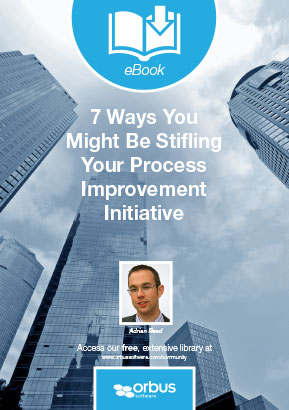In this paper, Adrian Reed discusses seven problems that can stifle process improvement initiatives, and proposes ways to avoid or resolve them.
Improving business processes can be a tricky endeavor. In order to optimize, improve or overhaul a process, we must have a firm understanding of why the process exists in the first place and what it is expected to do. We need to understand broader factors like the customer’s expectation on how fast (or how well) the process should operate, and how we position our product or service (the check in process at a motel is likely to be very different when compared with a five star hotel). This is before we even consider human factors, culture, technology, and so on.
It is very easy for us to lose sight of one or more of these factors, and if this happens it is likely that our process initiative will run off the rails. There are a number of common pitfalls that await the unprepared, and this eBook focuses on seven that warrant our attention. The seven topics aren’t presented in any specific order, and the importance and relevance of each will vary depending on the specific project or organizational context. However, remaining conscious of these (and other) pitfalls, and carrying out holistic analysis of the business situation will help us to ensure that our process improvement activities are effective and realize the benefits that our stakeholders want and need.
In this ebook, Adrian Reed discusses seven problems that can stifle process improvement initiatives, and proposes ways to avoid or resolve them. You can login to continue reading or sign up to download the ebook.
